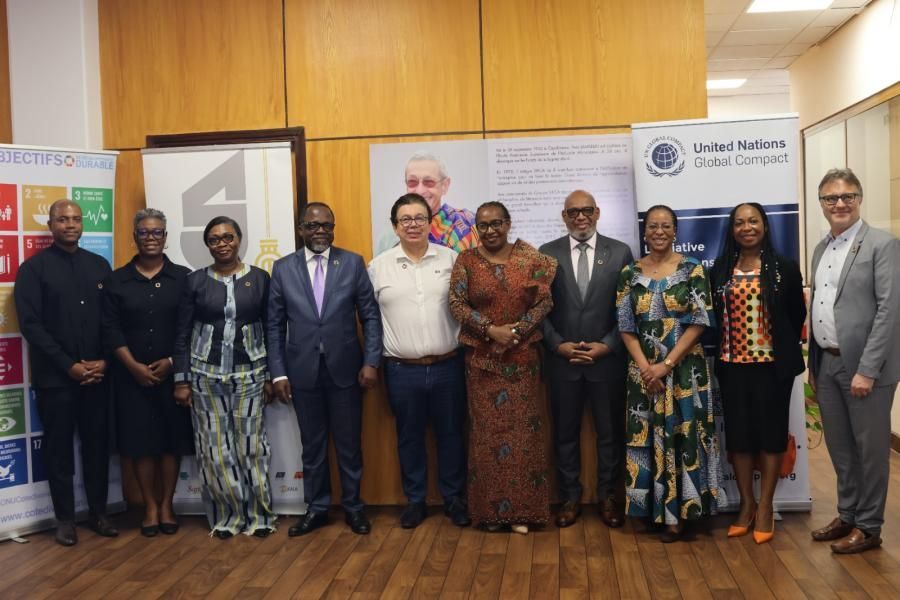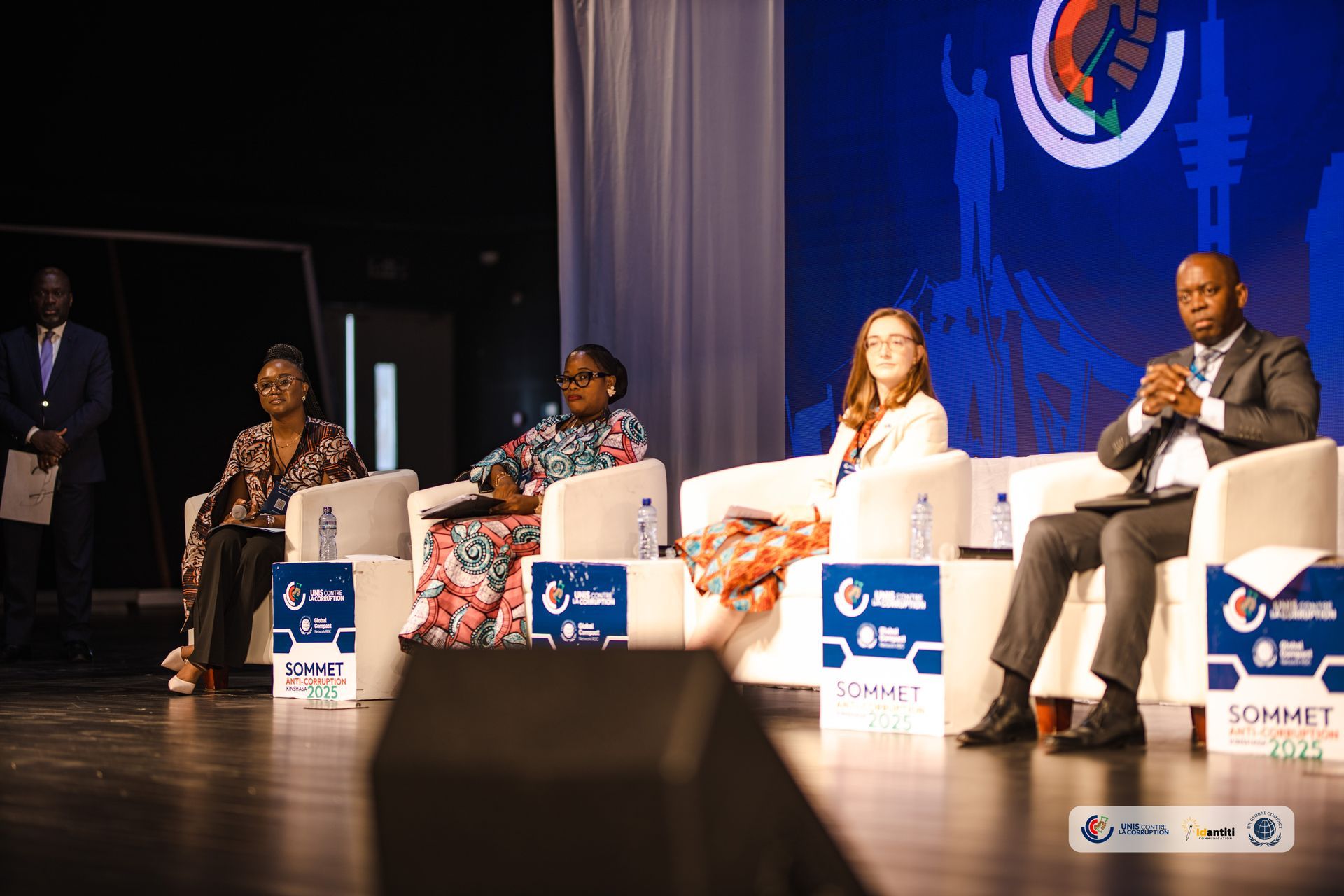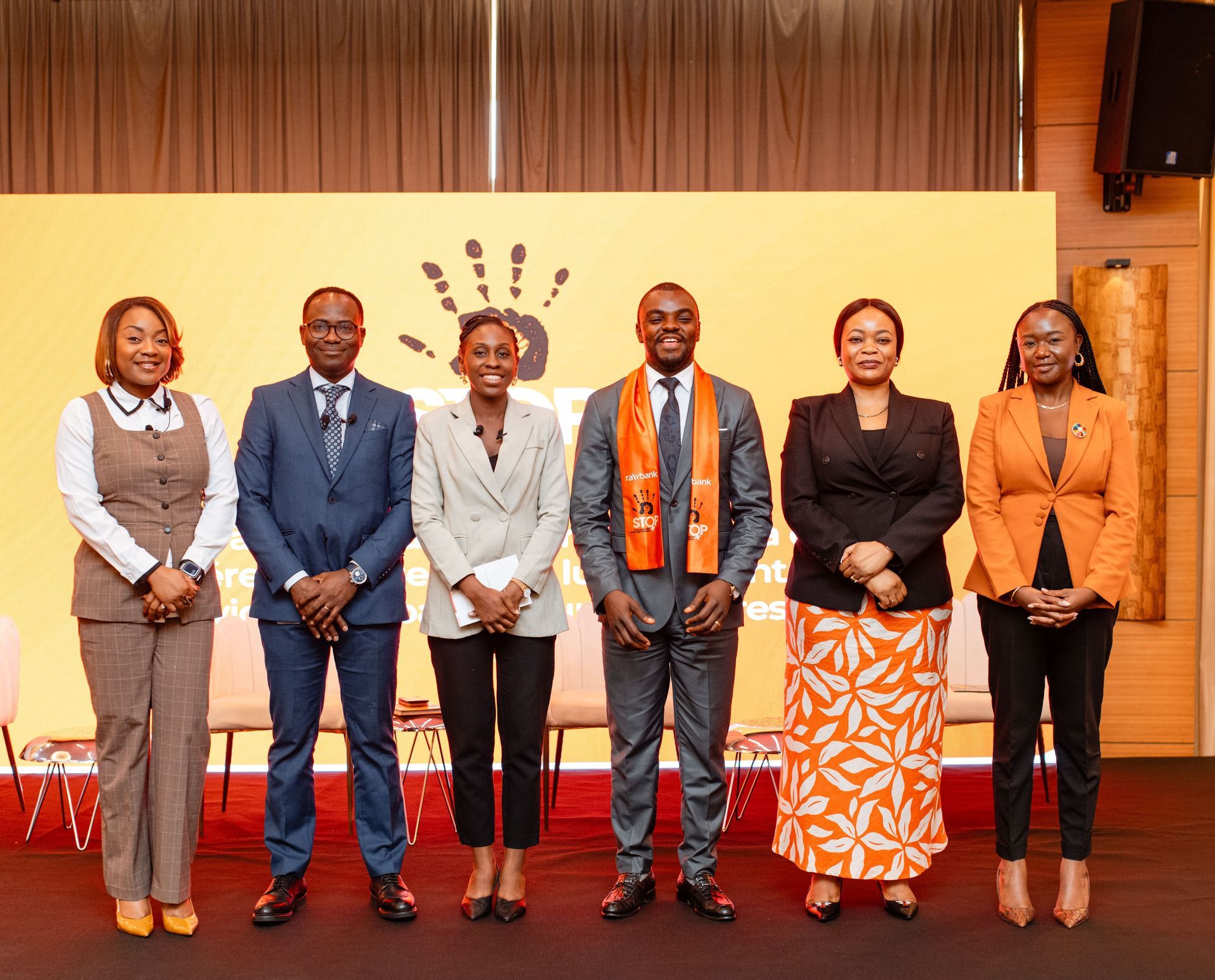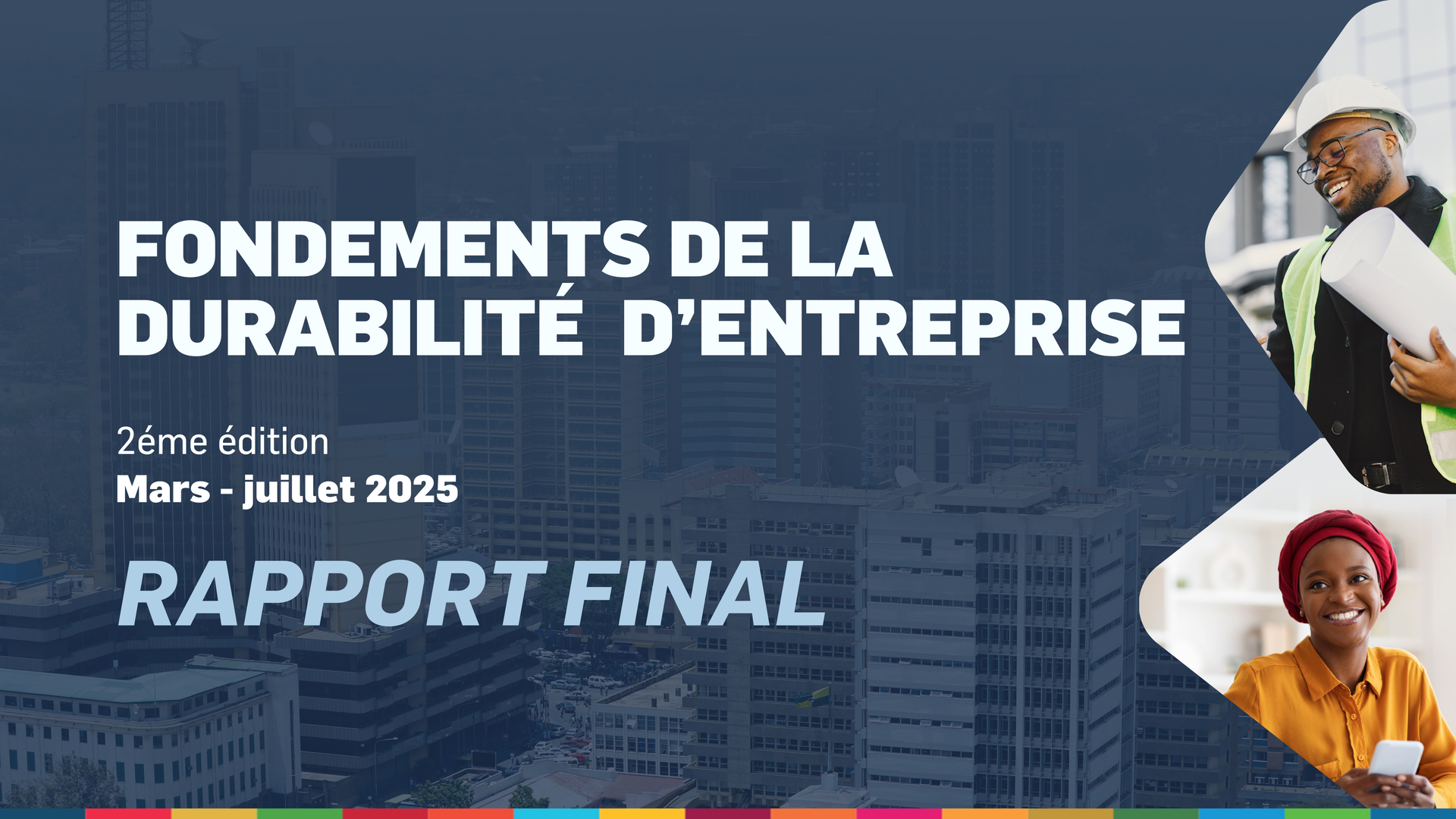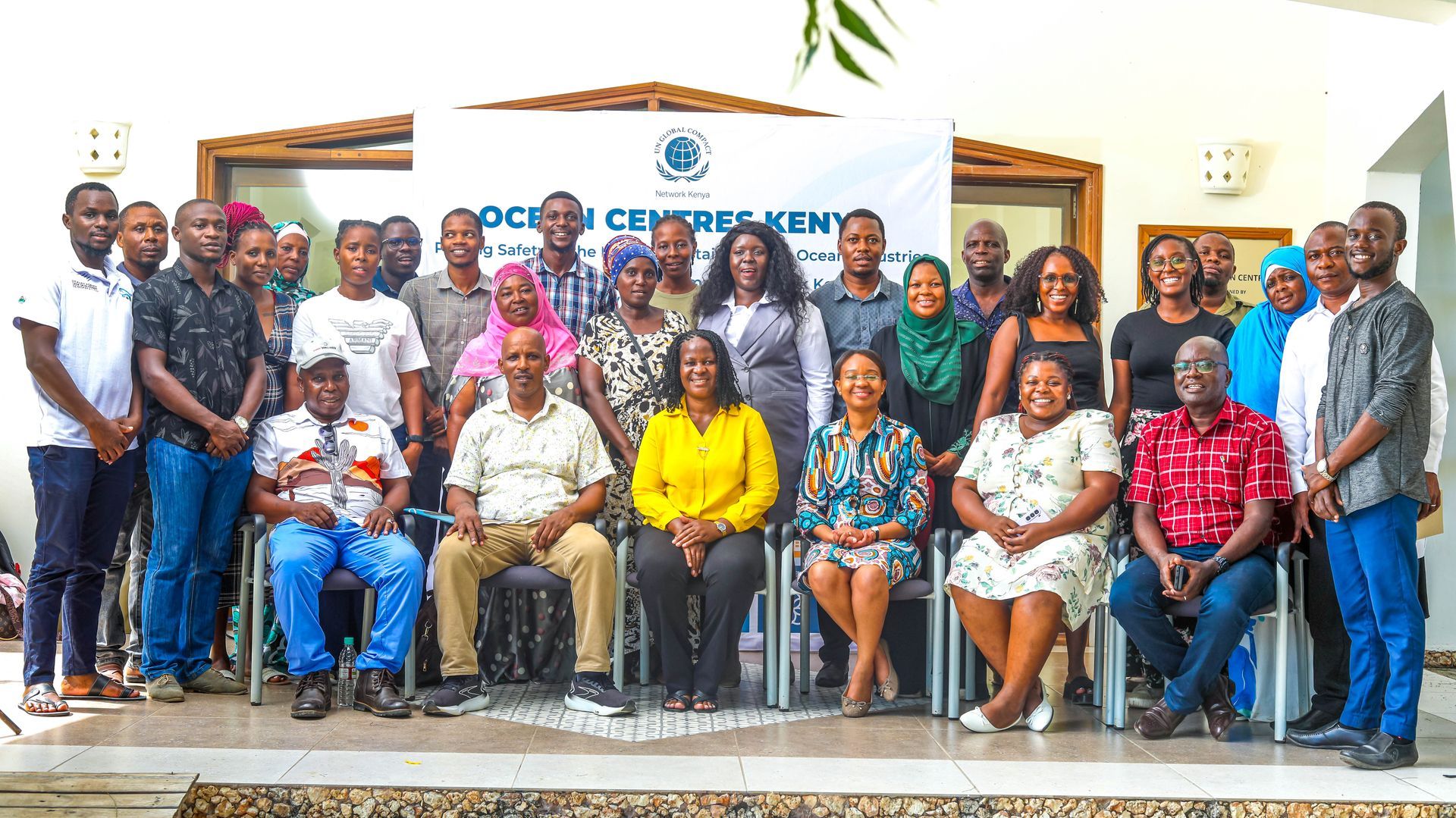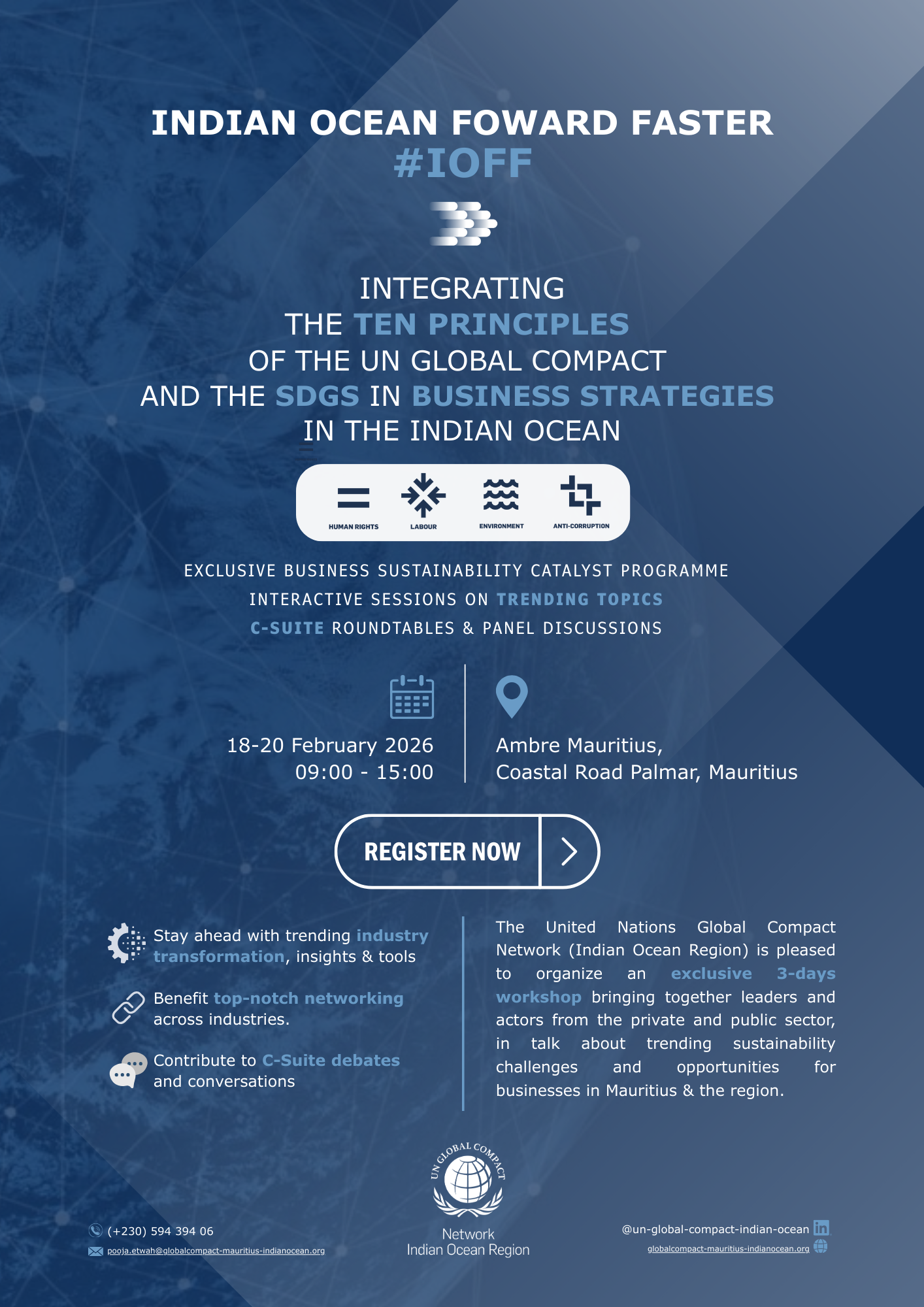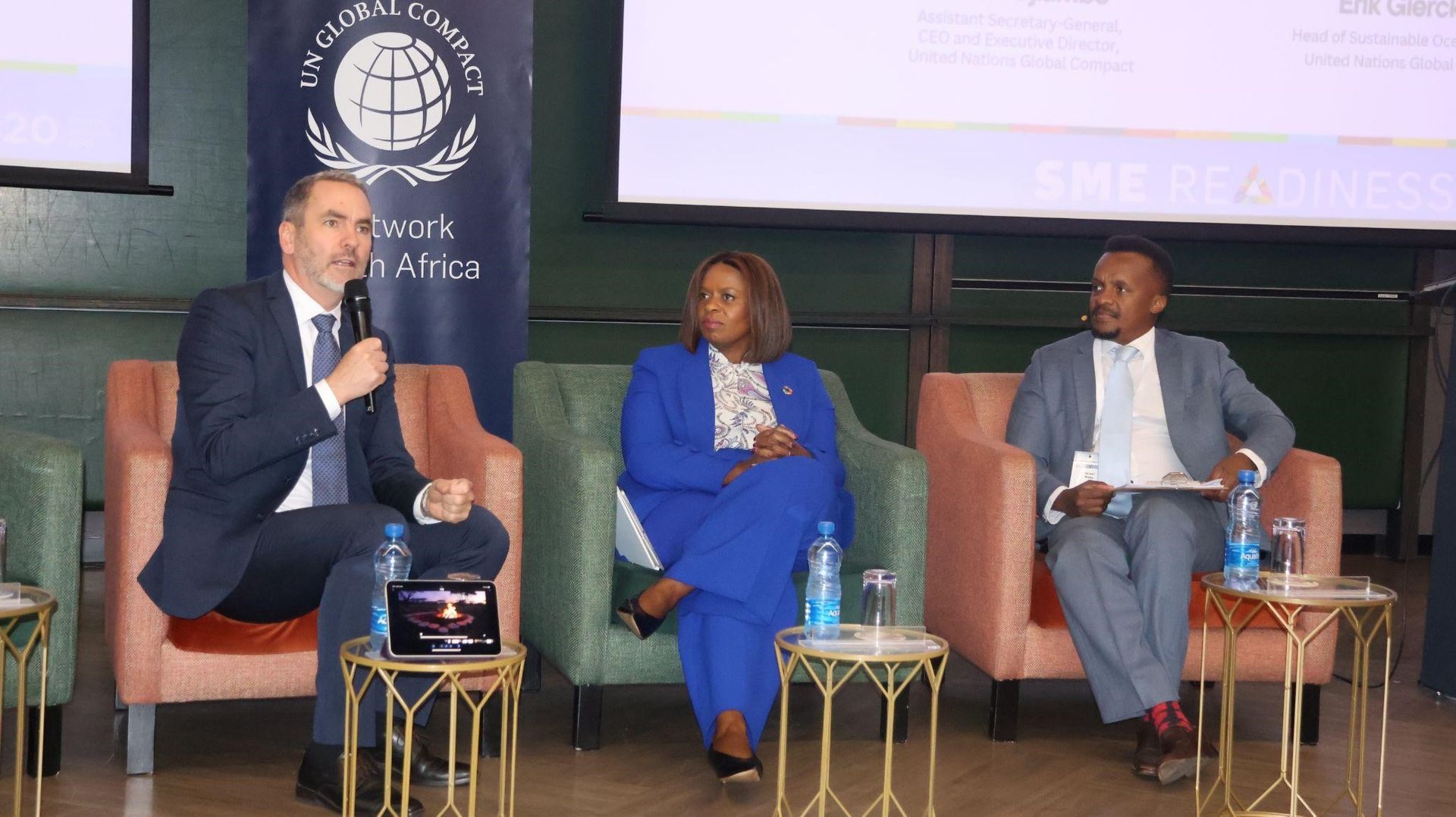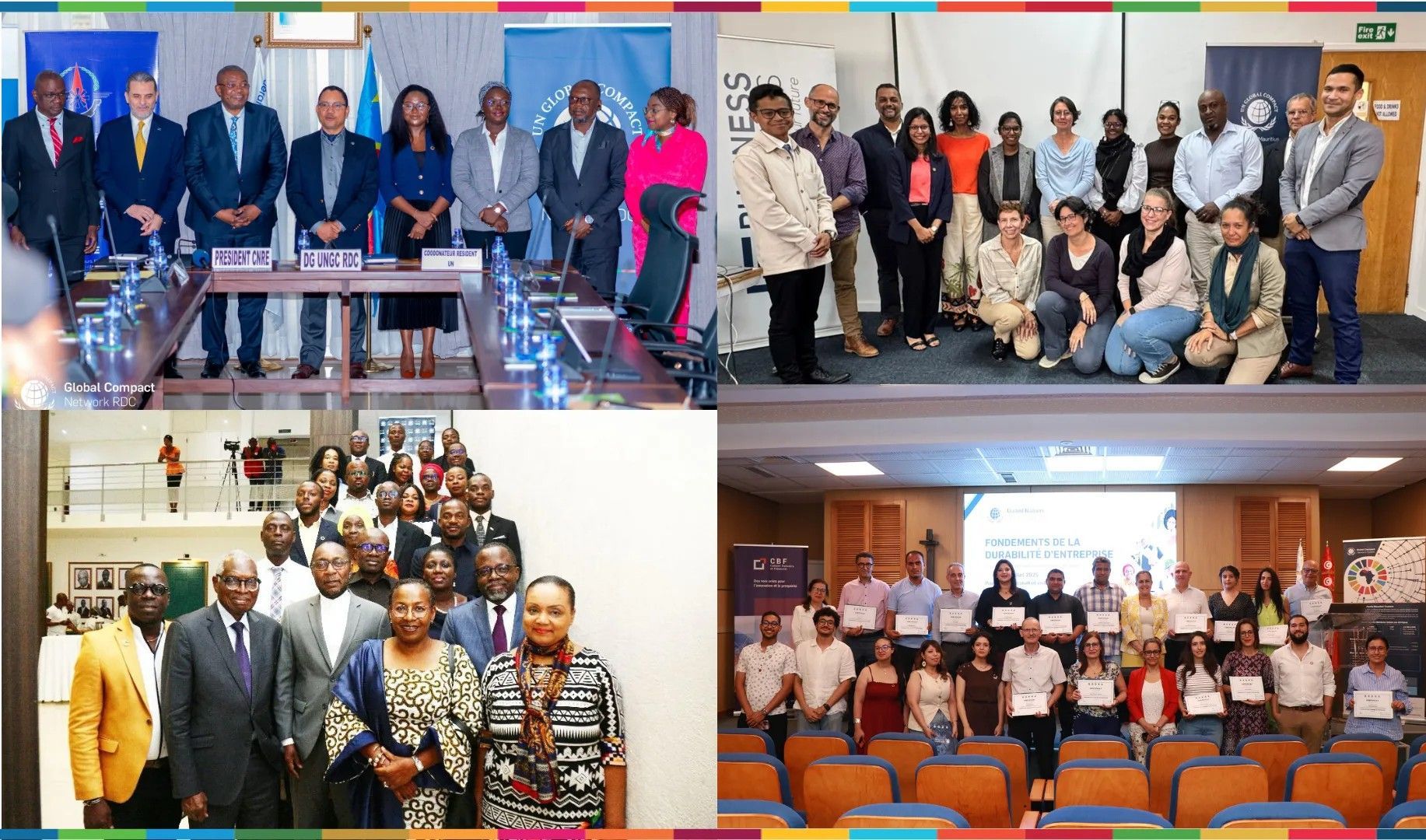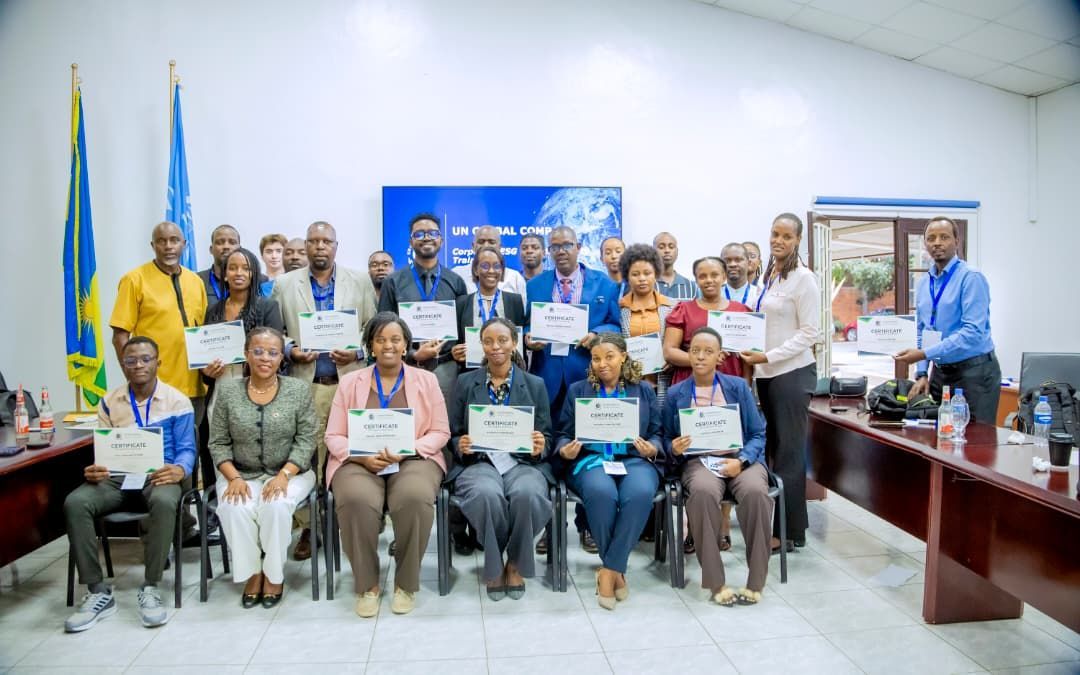Cote D'Ivoire Advisory Board fully commissioned
Watch the highlights of the inaugural meeting of the Advisory Board of the UN Global Compact in Cote D'Ivoire.
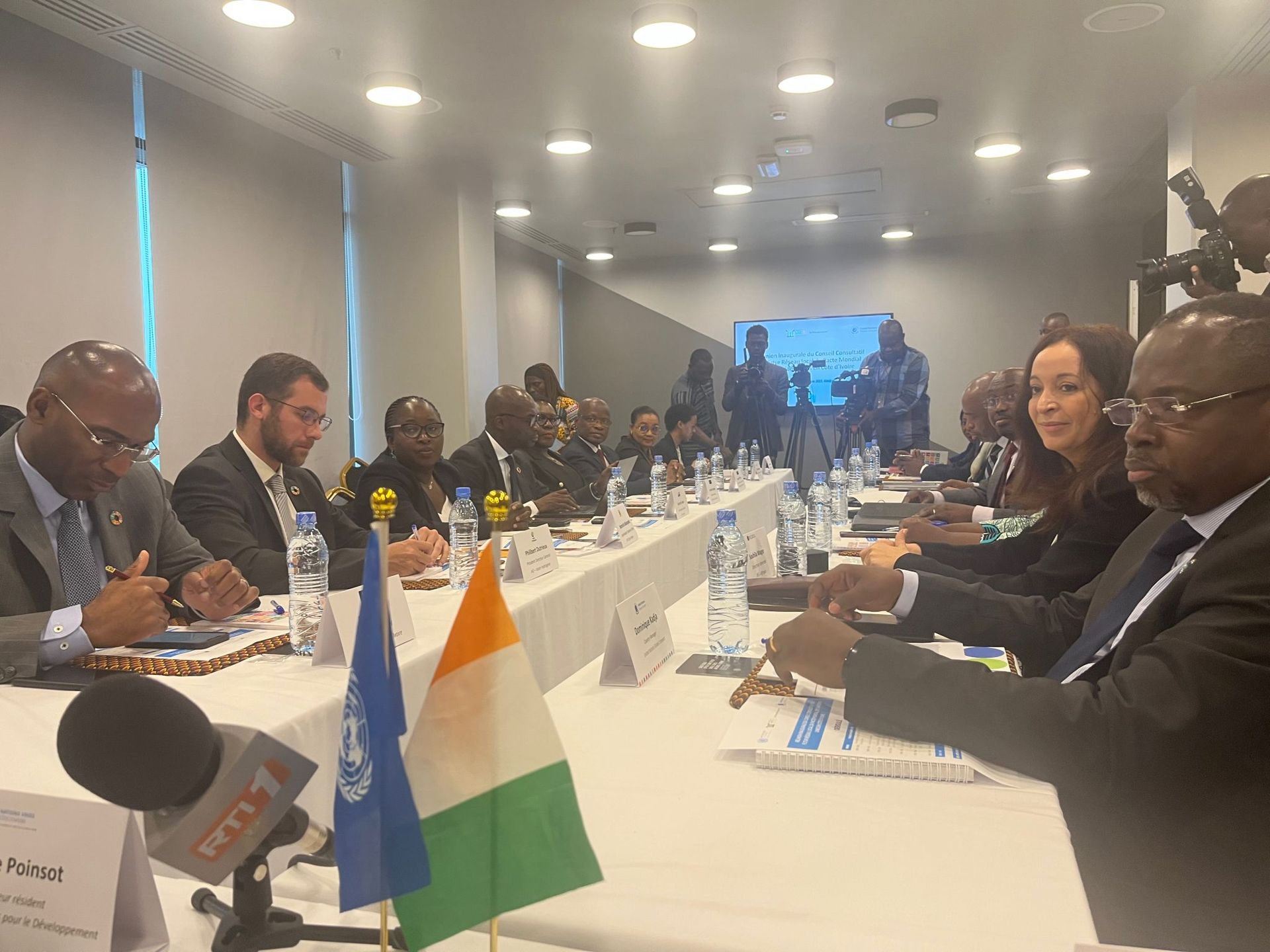
In October 2023, the United Nations Global Compact and the General Confederation of Enterprises of Côte d'Ivoire (CGECI) joined forces to enhance corporate sustainability in the country, paving the way for responsible companies to play a pivotal role in achieving the Sustainable Development Goals (SDGs). Read the full story
here.
To watch the highlights of this significant inaugural meeting of the Advisory Board of the UN Global Compact in Cote D'Ivoire, click here.
